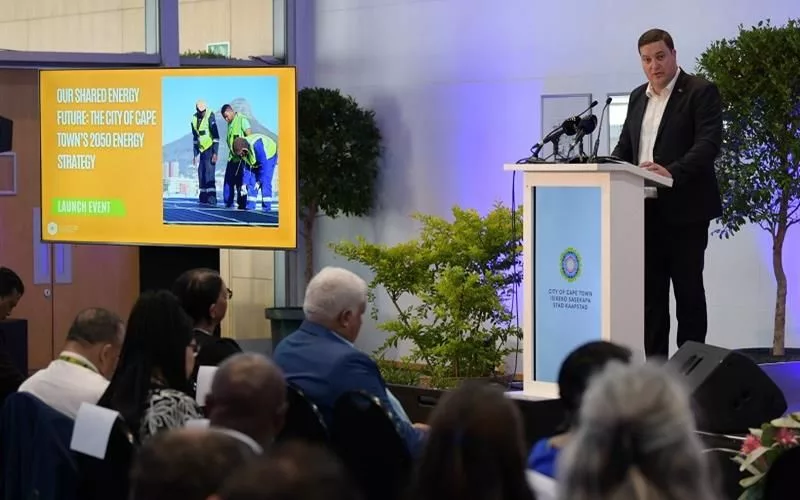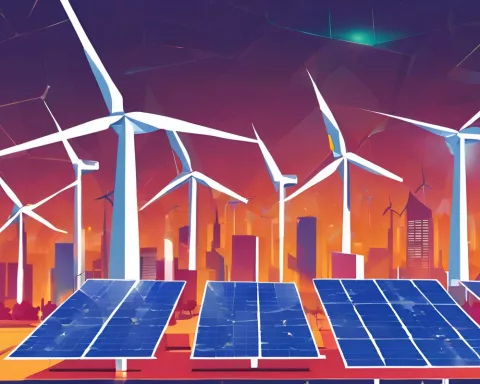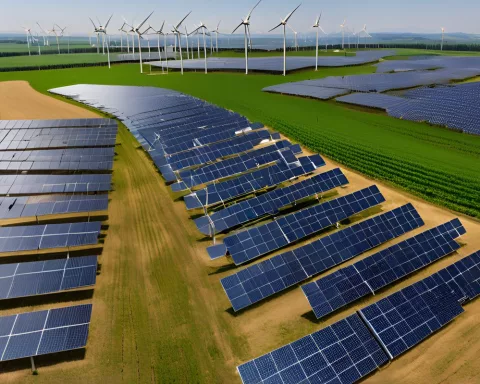Cape Town has introduced an innovative energy strategy that enables residents to sell their excess solar power back to the city through the ‘Cash for Power’ program, which pays them in cash rather than crediting their municipal bills. The city aims to end load-shedding, stimulate job creation and economic growth, and provide free basic alternative energy to non-grid connected households, while residents can also join the ‘Power Heroes’ program by turning off their water heaters during peak hours. Cape Town’s Mayor, Geordin Hill-Lewis, stated that Cape Town is now the pioneer city with an officially adopted Energy Strategy that aims to terminate load-shedding and stimulate job creation and economic growth.
Can Cape Town residents earn money from their excess solar power?
Yes, Cape Town has implemented an innovative energy strategy that allows residents to profit from their surplus solar power by selling it back to the city through the ‘Cash for Power’ program. The city aims to end load-shedding, stimulate job creation and economic growth, and provide free basic alternative energy to non-grid connected households. Residents can also voluntarily participate in the ‘Power Heroes’ program by turning off their water heaters during peak hours.
Cape Town, famously renowned for its picturesque landscapes, vibrant lifestyle, and cultural richness, has now added another sterling achievement to its reputation. The city has taken strides ahead in implementing an innovative energy strategy, providing residents with the opportunity to profit from their solar photovoltaic (PV) systems.
Taking the Lead in Energy Innovation
On February 11, 2024, Cape Town’s Mayor, Geordin Hill-Lewis, announced the commencement of the city’s first application phase for residents who wish to sell their surplus solar energy back to the city. This significant announcement coincided with the unveiling of the City’s Energy Strategy at the Cape Town International Convention Centre.
This groundbreaking initiative trumps any existing scheme of crediting municipal bills, as it allows households to earn actual cash through their excess solar power. The progressive strategy has established a roadmap leading up to 2050 and has immediate plans to secure the city against the first four stages of Eskom load-shedding by 2026.
Hill-Lewis affirmed that Cape Town is now the pioneer city with an officially adopted Energy Strategy. This initiative aims to terminate load-shedding and stimulate job creation and economic growth. He emphasized the crucial role of Cape Town’s residents and businesses in aiding the implementation of this strategy.
Harmonious Strategy and Resident Participation
The city’s strategy fosters a symbiotic relationship with its residents and businesses, urging them to contribute towards the common objective of ending load-shedding. This is facilitated through the ‘Cash for Power’ program, under which households and businesses can sell all the solar power they generate back to the city.
The ‘Power Heroes’ program also calls upon households to voluntarily turn off their water heaters during peak hours. This initiative aims to curb the risk of full-stage load-shedding. The city has also introduced mechanisms that allow businesses to sell power to each other, thereby infusing approximately 350MW of decentralized power into Cape Town’s grid.
Hill-Lewis made this landmark announcement following President Ramaphosa’s promises during his final SONA to address the energy crisis and end South Africa’s 17-year load-shedding nightmare. However, Hill-Lewis pointed out that the situation has only worsened after each pledge, prompting Cape Town to take the initiative in rectifying the problem.
Short-Term Strategy and Long-Term Goals
The city’s immediate strategy to mitigate load-shedding up to 2026 heavily relies on the Steenbras Hydro Plant, 500MW of dispatchable energy, and demand management programs like ‘Power Heroes’ and Large Power Users (LPUs) curtailment.
Cape Town has set a strategic objective to introduce up to one gigawatt of independent power supply to end load-shedding. The first 650MW is expected to be operational within the next five years. This energy strategy is further fortified by various initiatives, including the Large Power Users (LPUs) curtailment, ‘Power Heroes’, the IPP 3 tender, embedded IPP renewable energy, the Dispatchable IPP Programme, and Wheeling.
Under Councillor Beverley van Reenen’s leadership, the Mayoral Committee Member for Energy, these strategic commitments are grounded in three key principles: ending load-shedding, relieving energy poverty, and optimizing energy use across Cape Town. The city aims to maintain the high electrification rate in informal settlements and provide free basic alternative energy to non-grid connected households.
Easy Application Process and a Bright Future
Applying for the ‘Cash for Power’ initiative has been made accessible for existing residential customers. Applications are open until March 8, and applicants need to be registered as a service provider on both the City Supplier Database and the National Treasury Web Based Central Supplier Database.
Cape Town, with its innovative approach towards dealing with the energy crisis, continues to set the standard for other cities across South Africa. The energy strategy demonstrates the city’s commitment to its citizens and the environment. As we envision a future powered by the sun, we envisage a city actively pushing for change, not just talking about it.
What is Cape Town’s innovative energy strategy?
Cape Town has implemented an innovative energy strategy that allows residents to sell their excess solar power back to the city through the ‘Cash for Power’ program, which pays them in cash rather than crediting their municipal bills. The city aims to end load-shedding, stimulate job creation and economic growth, and provide free basic alternative energy to non-grid connected households, while residents can also join the ‘Power Heroes’ program by turning off their water heaters during peak hours.
How does the ‘Cash for Power’ program work?
The ‘Cash for Power’ program allows households and businesses to sell all the solar power they generate back to the city, earning them actual cash instead of credits on their municipal bills.
What is the objective of Cape Town’s Energy Strategy?
Cape Town’s Energy Strategy aims to terminate load-shedding, stimulate job creation and economic growth, and provide free basic alternative energy to non-grid connected households.
How does Cape Town’s strategy foster a symbiotic relationship with its residents and businesses?
Cape Town’s strategy fosters a symbiotic relationship with its residents and businesses by urging them to contribute towards the common objective of ending load-shedding. This is facilitated through the ‘Cash for Power’ program, under which households and businesses can sell all the solar power they generate back to the city. The ‘Power Heroes’ program also calls upon households to voluntarily turn off their water heaters during peak hours.
What is Cape Town’s short-term strategy to mitigate load-shedding?
Cape Town’s short-term strategy to mitigate load-shedding up to 2026 heavily relies on the Steenbras Hydro Plant, 500MW of dispatchable energy, and demand management programs like ‘Power Heroes’ and Large Power Users (LPUs) curtailment.
What are Cape Town’s long-term goals for independent power supply?
Cape Town has set a strategic objective to introduce up to one gigawatt of independent power supply to end load-shedding. The first 650MW is expected to be operational within the next five years. This energy strategy is further fortified by various initiatives, including the Large Power Users (LPUs) curtailment, ‘Power Heroes’, the IPP 3 tender, embedded IPP renewable energy, the Dispatchable IPP Programme, and Wheeling.












